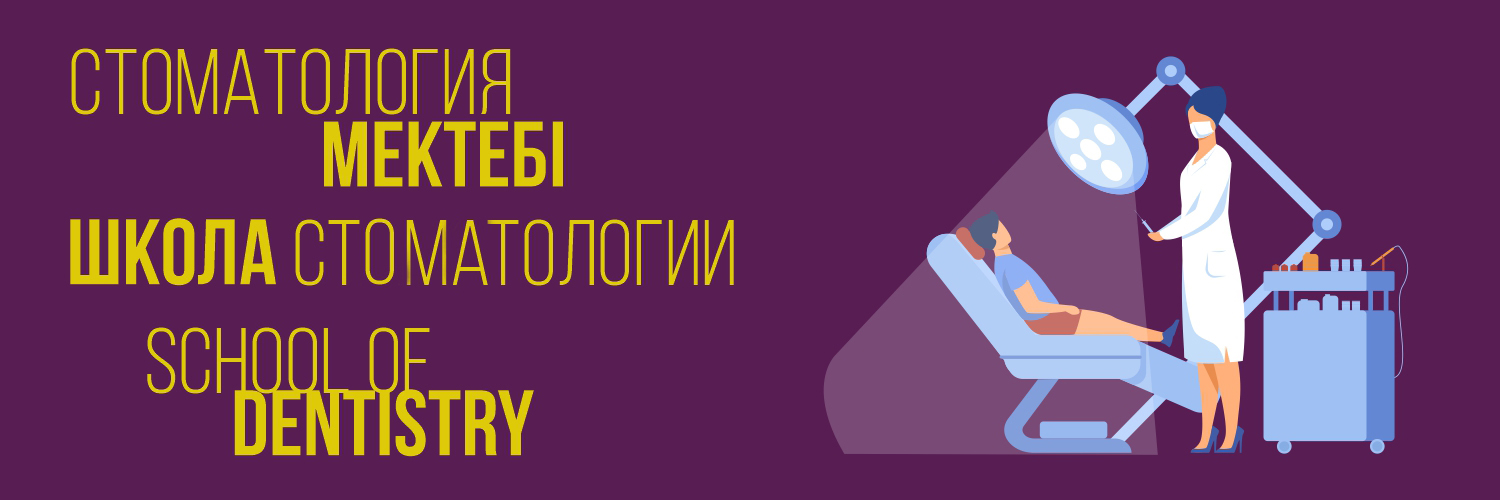From the first days of the organization, the Department began intensive work on the preparation of educational materials, became a major center for training scientific and pedagogical personnel. Newly created lecture course, methodological developments for students and teachers, working curriculum in the specialty, qualification characteristics of the pediatrics dentist.
Since 1989, training of pediatric dentists in subordination and internship has begun. Since 1979, the Department has opened a clinical residency, since 1987 – a post-graduate program and since 1993-a doctoral program, where dozens of specialists and researchers were trained.
At the same time, the Department was undergoing major organizational changes. So, by the order of the rector of AGMI No. 287 of 28.09.1990, an independent Department of prevention of dental diseases with a course of orthodontics was separated from the Department (head.- Professor D. N. Dzhumadillaev), which was reorganized in 1998, after which the course of prevention of dental diseases was again attached to the Department of pediatric dentistry, the course of orthodontics – to the Department of orthopedic dentistry. In the 2009-2010 academic year, by order of the rector of KazNMU No. 1473-l dated September 7, 2009. a course of orthodontics was attached to the Department. Since then and to the present time, the Department of pediatric dentistry consists of 4 disciplines: pediatric therapy, pediatric surgical and maxillofacial surgery, prevention of dental diseases, orthodontics and pediatric prosthetics
Within the framework of academic mobility, Professor Mamekov A.D. worked at the Saratov state University for a week in 2017., Professor Supiev T. K. – in 2018 at the Tashkent state Institute of dentistry.
The Department of dentistry of children’s age actively participates in the preparation of standard educational programs, educational programs in dentistry. Professor G. T. Yermukhanova in the composition of the working group of the MPH participated in the drafting of clinical protocols for pediatric dentistry (2014-2015g.g.), in 2016. – preparation of standards for dental services in 2018. – preparation of professional standards.
Teaching staff of the department, 2009 year
Methodical meeting of the Department, 2009.
Professor Supiev T. K. enthusiastically conducts classes with students
Assistant Ibragimova, C. H. on a practical lesson
A group of dental surgeons discussing the curriculum
The Department trains students of 2, 3, 4 and 5 courses in the specialty 5B130200 – “Dentistry” in the state, Russian and English languages. Study – front, cycle, credit. Students at the Department study the following main disciplines:
1.Prevention of dental diseases-3rd year
2.Propaedeutics of pediatric dentistry-4th year
3.Pediatric dentistry-5th year
4.Pediatric surgical dentistry and maxillofacial surgery-5th year
5.Orthodontics and children’s prosthetics-5th year
6.Training practice “dental Hygienist” – 3rd year
7. Production practice “assistant dentist” – 5th year
Training courses reflect current issues of pediatric dentistry and orthodontics, while the list of elective courses offered is changing due to the requirements of the modern labor market. New elective courses are being developed taking into account the wishes and suggestions of employers. In this academic year, students are trained in the following elective disciplines:
1.Manufacturing technology of orthodontic structures-2nd year
2.Prevention of dental anomalies-3rd course
3.Innovative methods of prevention of dental caries in children-3rd year
4.Urgent conditions in children’s dental practice-3rd year
5.Features of treatment of complicated caries of permanent teeth with unformed roots-4th course
6.Anomalies and malformations of the dental system, oral and facial organs in children-4th year
7.Principles of invisible orthodontics in providing aesthetics-4th year
Along with traditional (passive) methods, the Department actively uses innovative teaching methods that are practice-oriented in nature: case studies, problem-oriented training, team-oriented training, business, role-playing games, the method of “brainstorming”, the method of group discussion, combined survey, the method of training in small groups, simulation technologies, presentations. Methods of innovative training are characterized by the maximum approximation to the real professional situation and allow the most effective formation of professional competence of the future specialist and the responsibility of students for the result of the learning process.
Over the past five years, team-based learning (TBL) has been introduced; the use of distance learning elements on the “MOODLE” platform.





